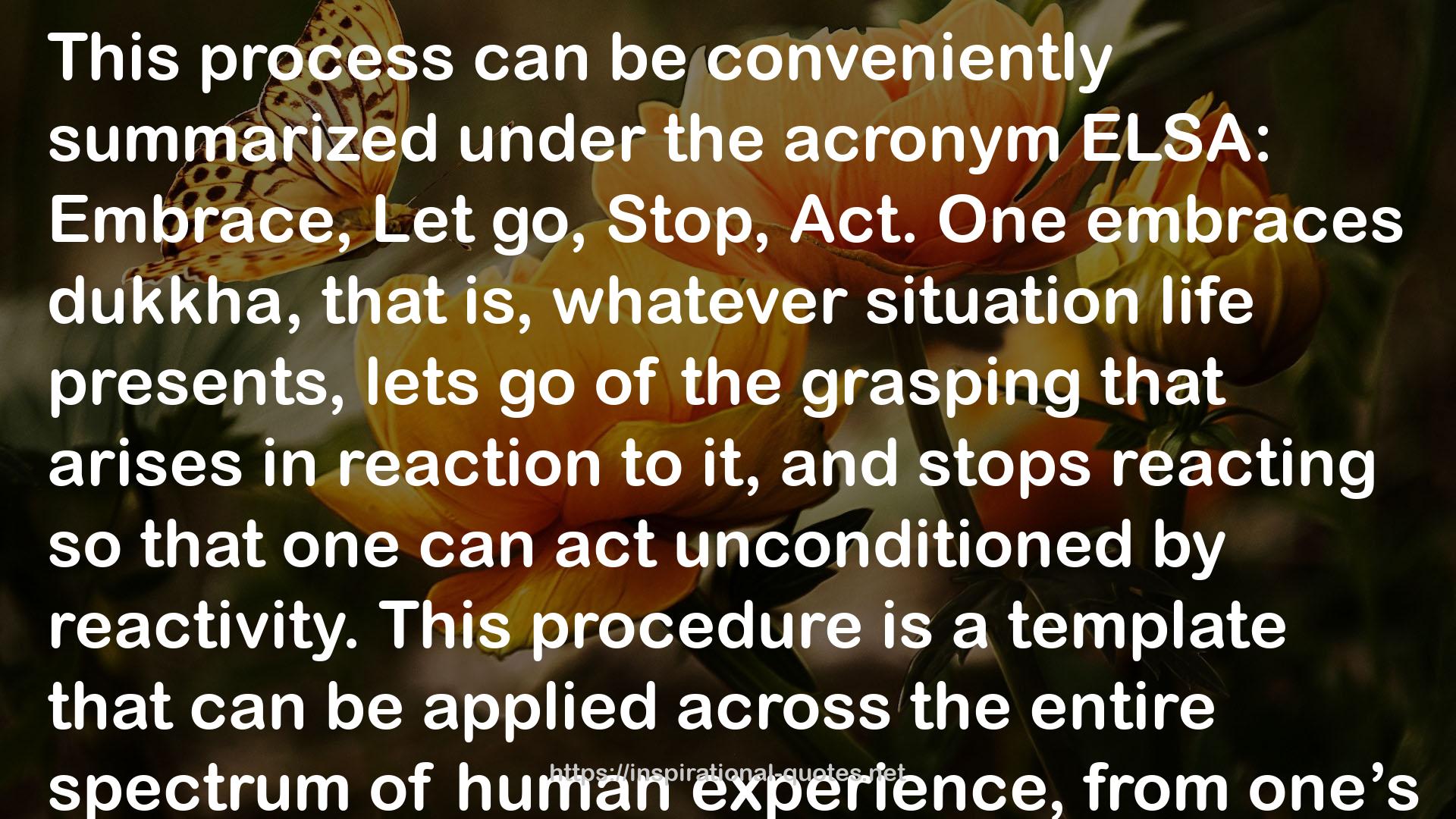" This process can be conveniently summarized under the acronym ELSA: Embrace, Let go, Stop, Act. One embraces dukkha, that is, whatever situation life presents, lets go of the grasping that arises in reaction to it, and stops reacting so that one can act unconditioned by reactivity. This procedure is a template that can be applied across the entire spectrum of human experience, from one’s ethical vision of what constitutes a “good life” to one’s day-to-day interactions with colleagues at work. Buddhism 2.0 has no interest in whether or not such a way of life leads to a final goal called nirvana. What matters is an ever-deepening, ever-broadening engagement with a process of practice in which each element of ELSA is a necessary and intrinsic part. “Ceasing” is no longer seen as the goal of the path but as those moments when reactivity stops (or is suspended) in order that the possibility of a path can reveal itself and be “brought into being.” Just as dukkha gives rise to craving (rather than the other way round), so the ceasing of craving gives rise to the eightfold path (rather than the other way round). Thus Buddhism 2.0 turns Buddhism 1.0 on its head. "
― Stephen Batchelor , Secular Buddhism: Imagining the Dharma in an Uncertain World
